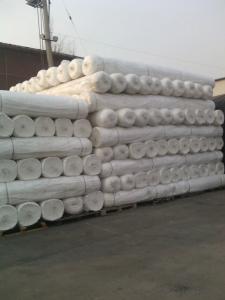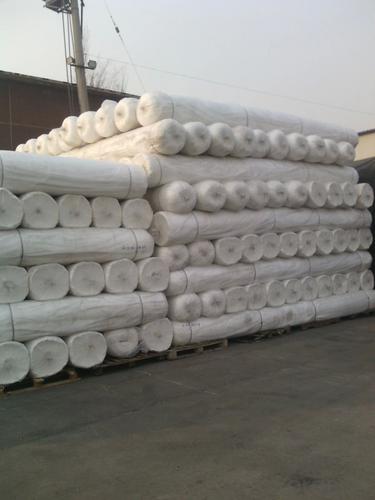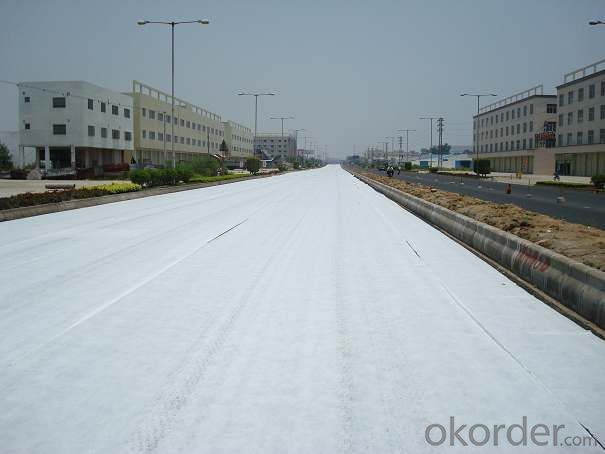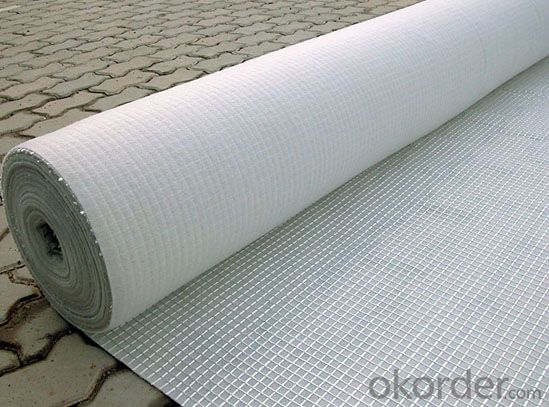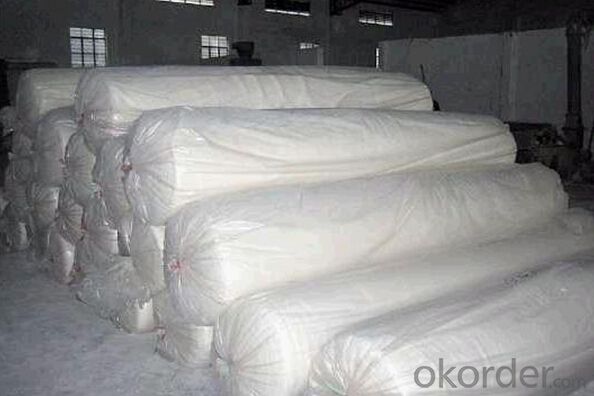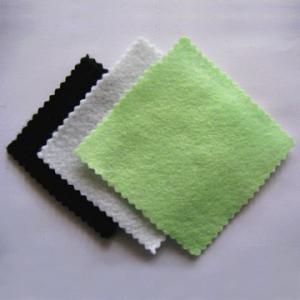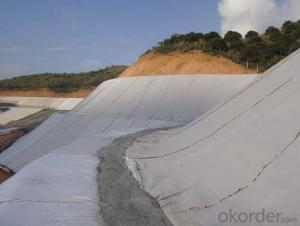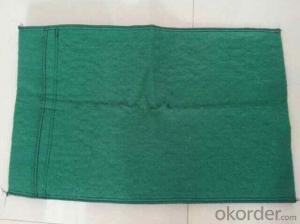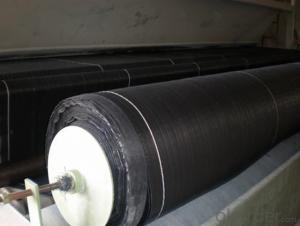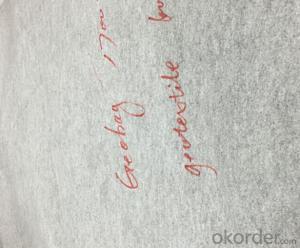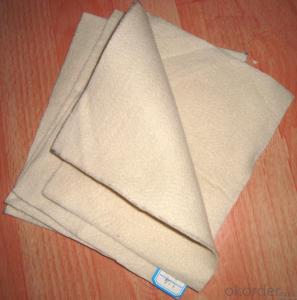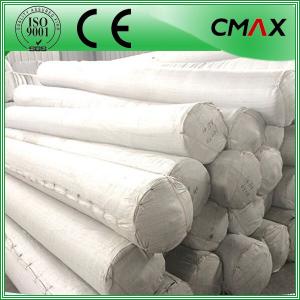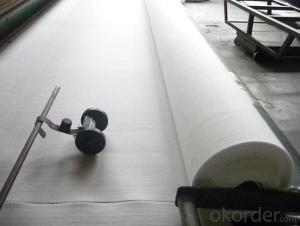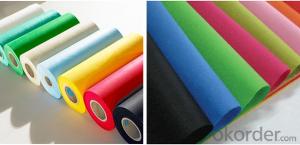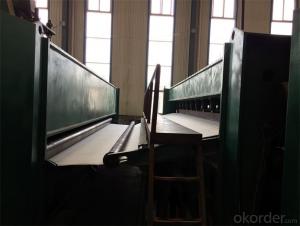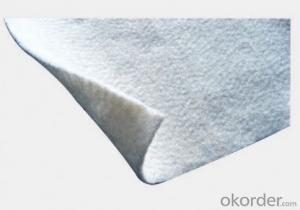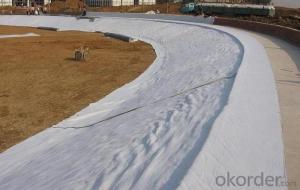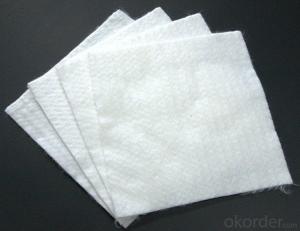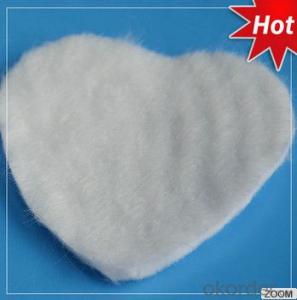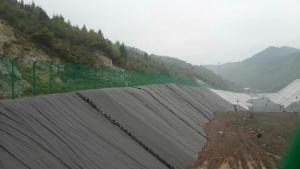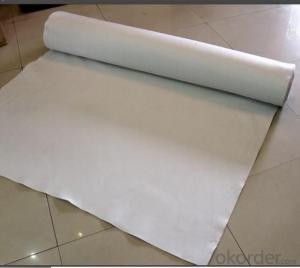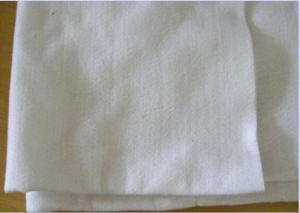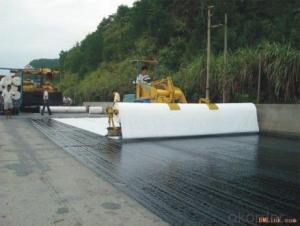Geotextil Blanco - Pet Filament Spunbonded Needle Punched Nonwoven Geotextile
- Loading Port:
- Qingdao
- Payment Terms:
- TT or L/C
- Min Order Qty:
- 10000 m²
- Supply Capability:
- 100000 m²/month
OKorder Service Pledge
OKorder Financial Service
You Might Also Like
Description of Non Woven Geotextile
Made from PP(polypropylene) or PET (polyester) short fiber by nonwoven needle punched manufacturing process, it has isolation, filtration, drainage, reinforcement, protection and maintenance etc. function.
Property of Non Woven Geotextile
1. Good flexbility, resistant to corrosion, resistant to acids and alkalis, anti-oxidation.
2. Separation, filtration, drainage, reinforcement, protection, and maintenance function.
Application
1. Filtration of soils in drainage applications by retaining soil particles while allowing for the
free flow of water
2. Separation and reinforcement in road railway construction
3. Prevention of soil movement in erosion control measures
4. Cushioning and protection in many containment projects
Specification
Number | Item | Value | ||||||||||
100 | 150 | 200 | 250 | 300 | 350 | 400 | 450 | 500 | 600 | 800 | ||
1 | Weight Variation(%) | -6 | -6 | -6 | -5 | -5 | -5 | -5 | -5 | -4 | -4 | -4 |
2 | Thickness(mm)≥ | 0.8 | 1.2 | 1.6 | 1.9 | 2.2 | 2.5 | 2.8 | 3.1 | 3.4 | 4.2 | 5.5 |
3 | Width Variation% | -0.5 | ||||||||||
4 | Breaking Strength( KN/m)≥ | 4.5 | 7.5 | 10.5 | 12.5 | 15 | 17.5 | 20.5 | 23 | 25 | 30 | 40 |
5 | Elongation at break% | 40-80 | ||||||||||
6 | CBR Mullen Burst Strength KN≥ | 0.8 | 1.4 | 1.8 | 2.2 | 2.6 | 3 | 3.5 | 4 | 4.7 | 5.5 | 7 |
7 | Sieve Size O90(mm) | 0.07-0.2 | ||||||||||
8 | Vertical Permeability Coefficient cm/s | K×(10-1-10-3),K=1.0-9.9 | ||||||||||
9 | Tearing Strength KN≥ | 0.14 | 0.2 | 0.28 | 0.35 | 0.4 | 0.49 | 0.56 | 0.6 | 0.7 | 0.8 | 1.1 |
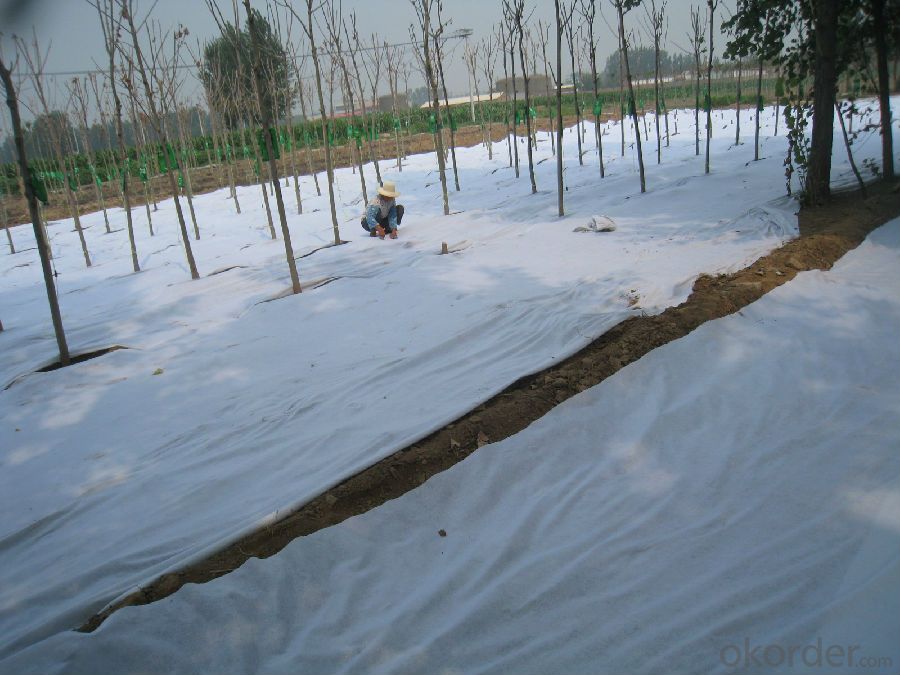
FAQ of our geotextile:
- Q: What can we do for the special customer?
A: Provide custom made service with customer's drawing; We make sure to provide you with the best solutions for your individual case. Whether standard items or non-standard items.
- Q: What can we supply?
A: We provide high levels of communication from start to finish.
- Q: What is our advantage?
A: Top Cemented Carbide has extensive business experience, Fast delivery and high quality.
- Q: What are the advantages of using geotextiles in waste containment systems?
- Geotextiles offer several advantages in waste containment systems. Firstly, they act as a barrier, preventing the migration of pollutants and contaminants into the surrounding environment. This helps to protect groundwater and nearby ecosystems from potential harm. Additionally, geotextiles enhance the stability and structural integrity of waste containment systems, reducing the risk of failure or leakage. They also aid in the filtration and drainage of liquids, allowing for proper waste management and preventing the buildup of excess moisture. Overall, geotextiles provide an effective and environmentally-friendly solution for waste containment, ensuring safer disposal of waste materials.
- Q: How do geotextiles aid in the reduction of pore water pressure?
- Geotextiles aid in the reduction of pore water pressure by acting as a drainage layer that allows water to flow through while preventing the migration of fine particles. This helps to alleviate the buildup of water pressure within the soil, reducing the risk of soil liquefaction or instability.
- Q: What are the geotextiles for concrete health
- Is non-woven material
- Q: Do you want to use glue to connect the geotextile?
- Shuo earth geotextile production of drainage board geotextile, Manager Li
- Q: Alteration of highway seepage control geotextile is generally placed in what position
- Apply to the grassroots level of water defense, the use of embedded, covered with thickness should not be less than 30CM, soil to be solid, to avoid uneven subsidence, cracks. Lap width should be greater than 15CM.
- Q: What are the different geotextile performance properties?
- Geotextile performance properties can vary depending on the specific application, but some common properties include filtration, separation, drainage, reinforcement, and erosion control.
- Q: How do geotextiles help in preventing lateral spreading of soil?
- Geotextiles help in preventing lateral spreading of soil by acting as a barrier that stabilizes the soil and restricts its movement. These synthetic materials are placed between layers of soil to provide reinforcement and prevent the lateral displacement of soil particles. The geotextiles act as a separator, allowing water to pass through while retaining soil particles, thus reducing the potential for soil erosion and lateral spreading.
- Q: Geotextile is what to do with
- Huazhi geotechnical materials manufacturers to answer
- Q: Why is the roadbed geotextile
- Geotextile is also very many kinds of it, you can say that the specific point of it, geotextile gas barrier to seepage, filter and so on, the general use is to prevent cracks reflected to the above
- Q: Filter geotextile performance ~ main function ~
- Filter geotextile performance ~ main function ~
1. Manufacturer Overview
| Location | Taian City,Shandong Province,China |
| Year Established | 2008 |
| Annual Output Value | Above US$100 Million |
| Main Markets | Africa, Oceania, North America, Western Europe, Eastern Asia |
| Company Certifications | ISO9001;IS014001 Certificate |
2. Manufacturer Certificates
| a) Certification Name | |
| Range | |
| Reference | |
| Validity Period |
3. Manufacturer Capability
| a) Trade Capacity | |
| Nearest Port | Qingdao Port;Tianjing Port;Shanghai Port |
| Export Percentage | |
| No.of Employees in Trade Department | 21-30 People |
| Language Spoken: | English; Chinese; |
| b) Factory Information | |
| Factory Size: | 10,000-30,000 square meters |
| No. of Production Lines | Above 10 |
| Contract Manufacturing | Geotechnical Material (Geogrid,Fiberglass/Polyester Geogrid,Geocell,Geonet and Geomat,Plastic Safety Fence) |
| Product Price Range | Average |
Send your message to us
Geotextil Blanco - Pet Filament Spunbonded Needle Punched Nonwoven Geotextile
- Loading Port:
- Qingdao
- Payment Terms:
- TT or L/C
- Min Order Qty:
- 10000 m²
- Supply Capability:
- 100000 m²/month
OKorder Service Pledge
OKorder Financial Service
Similar products
Hot products
Hot Searches
Related keywords
